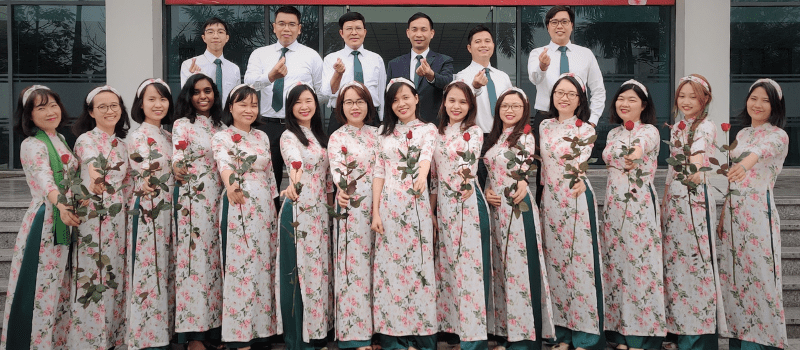 In this photo, we are performing a health assessment on a newborn goat that wasn’t doing so well due to inadequate colostrum intake.
In this photo, we are performing a health assessment on a newborn goat that wasn’t doing so well due to inadequate colostrum intake.
My name is Dian Kartolo, and I am a third-year veterinary student at the University of Guelph’s Ontario Veterinary College (OVC). Recently, I had the privilege of volunteering in Ghana through Veterinarians Without Borders’ (VWB/VSF) YVP VETS program, and it was an extremely rewarding experience!
In May 2022, I left for my volunteer position in Ghana as an Integrated Animal Health Specialist, where we spent three months working with VWB/VSF’s on-the-ground partners, SEND and GAPNET, across various communities in Northern Ghana. We spent six weeks in Tamale — the third-largest city in Ghana, four weeks in Yua — a lovely small community in the northeast corner of the country, and two weeks in Accra — Ghana’s capital city.
In Tamale with SEND, we provided educational presentations to small-holder farmers on the importance of animal welfare for production. We aimed to stress that if you treat an animal well, it will provide you with what you need. For example, a healthy and well-cared for chicken will lay more eggs for you to sell, compared to a chicken that is sick or stressed. We delivered animal welfare presentations to farmers in the community in hopes to promote productivity and therefore, higher economic return for farmers.
GAPNET also organized vaccination campaigns for us to complete, and we successfully vaccinated ~1200 sheep and goats against Peste des Petits Ruminants (PPR), a severe viral infection that causes high death rates in sheep and goat populations...

In this photo, we are delivering an educational presentation on animal welfare with SEND in a community in the Savelugu district.
We also provided educational presentations during our time in Yua, with GAPNET. This time, our information sessions were geared towards animal production and husbandry — primarily best practices for raising goats, sheep, and poultry — which are important because these animals are a main source of food and income for Ghanaians. Topics covered included what to feed animals during the dry season, how to provide appropriate shelter, and how to prevent zoonotic disease transmission. There was an interest shown by the farmers in learning about the management of dystocia (difficulty birthing) in their sheep and goats, so we added this topic into our presentations during our time there! GAPNET also organized vaccination campaigns for us to complete, and we successfully vaccinated ~1200 sheep and goats against Peste des Petits Ruminants (PPR), a severe viral infection that causes high death rates in sheep and goat populations, as well as vaccinations against New Castle Disease, a viral disease that affects the poultry population.

In this photo, I am vaccinating a goat during one of our vaccination campaigns in a community near Sirigu.
We also had the pleasure of working with the Community Animal Health workers (CAWHs) through GAPNET. CAWHs are local volunteers from each community that dedicate their time to being local animal health representatives. They assisted with vaccination campaigns, as well as translated for us during our presentations. We also held training sessions specifically for the CAWHs on recognition of common animal diseases in Ghana. CAWHs hold an incredible role in their communities; they have continued with the vaccination efforts since we have left, and we are very grateful to have worked with them!
On top of the rewarding work that we completed with SEND and GAPNET, we also had the opportunity to experience Ghana in a truly unique way. Attending local market days to buy groceries, meeting and spending time with our neighbours, and making and trying local cuisine was an opportunity to truly integrate within Ghanaian culture! I made so many close connections with the people there — whether on project or locals — and still keep in touch to this day. There was also some time for us to explore tourist attractions - one of my favorite trips was visiting Mole National Park, where we got to see many beautiful animals such as elephants, baboons, kobs, and more!

This picture is taken with the community animal health workers (individuals wearing Canada T shirts), David (local veterinarian) and Gloria (GAPNET staff member) after a successful day of vaccinating goats and sheep.
International development work is something I am very passionate about, and one that I urge those who are interested in it to try. International development is very complex and intricate, with so many different inputs. It is not always smooth sailing; flexibility and adaptability are key attributes for a volunteer.
Bottom line? If you’re looking for a meaningful way to utilize your skills abroad and help support animals and communities, this is your chance! Learn more about our current volunteer openings. Or reach out to volunteers@vetswithoutborders.ca for more information.
Our VETS program wouldn’t be possible without generous funding from Global Affairs Canada.




